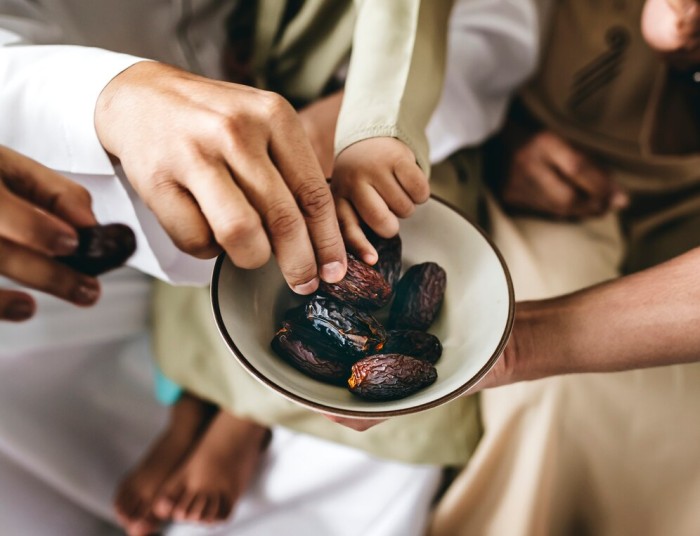IMANA NEWS
Fasting During Ramadan: What Are the Rules to Stay Spiritually and Physically Healthy?
13 March 2025

Ramadan, held during the ninth month of the Islamic lunar calendar, is observed by Islamic populations worldwide. It is centered on gratitude for Allah’s goodness and the revelation of the Quran, expressed through prayer, charity, and fasting. The sacred month-long celebration begins and ends depending on moon sightings.
The rituals during Ramadan are carried out not simply for the sake of following tradition but are essentially an expression of devotion, service, and heartfelt worship. During fasting, Muslims follow a protocol for religious and health reasons.
Everyone is expected to follow certain rules to successfully participate in this religious obligation.
Instructions for Healthy and Fulfilling Fasting During Ramadan
Here are some of the guidelines that Islam communities adhere to as they carry out proper and healthy fasts:
Do Not Eat or Drink During Daylight
It is strictly prohibited for those who are fasting to eat or drink anything during fasting hours. Chewing gum, drinking water, or taking medications are also not allowed. However, if taking medicines at certain hours of the day is critical for one’s health, they may be exempt from this rule.
They may also fast at a later date when health risks are significantly lower.
Do Not Engage in Sexual Intercourse During Fasting Hours
Muslims are required to abstain from sexual activities during fasting hours, though kissing and touching between spouses are allowed. The public display of affection is also minimized if not completely avoided.
Couples can enjoy sexual intimacy after the sun sets and before sunrise.
Observe Suhoor and Iftar
Suhoor is the pre-dawn meal that prepares our body for fasting before engaging in the first prayer of the day. This meal is ideally nutrient-dense, high-fiber, protein-rich, hydrating, and slowly digested, providing satiety and sustenance during the fast.
Examples of food items that can be taken during suhoor include eggs, cheese, milk, smoothies, vegetables, fruits, oatmeal, brown rice, quinoa, lentils, nuts, meat, butter, and complex carbohydrates. Fasting individuals are also encouraged to ingest generous amounts of fluid.
The communal meal, iftar, breaks the fast at sundown after the last prayers are said. It may include appetizers, soup, a main course, side dishes, dessert, and drinks.
Eat Healthy Food
Muslims must consume healthy, nutritious food especially during suhoor and iftar. These meals are a blessing from Allah, the source of all sustenance. Fasting purifies the body and spirit so it must not be contaminated by junk food and empty calories.
The key is to ingest balanced meals during suhoor and iftar for sustained energy that lasts throughout the day.
Stay Hydrated
Dehydration can negatively affect our physical and mental performance, so it is important to drink extra fluid during Ramadan. While practicing suhoor and iftar, Muslims should load up on water, fruit juices, smoothies, and water-rich fruits and vegetables like cucumber, turnip, and watermelon.
Too much caffeine and sugary drinks must be avoided to prevent dehydration and sluggishness.
Do Not Overindulge During Iftar
Breaking the fast mindfully and gently during iftar is important to avoid stomach problems. Overindulgence is prohibited because it goes against the principle of self-denial. Instead, we are encouraged to resume eating gently and slowly with dates, appetizers, and light soups.
Observe Times of Prayer
Apart from the five daily prayers that comprise the five pillars of Islam, we also engage in other voluntary prayers during Ramadan. These include:
- Tarawih or Night Prayers, which include recitations of long portions of the Quran
- Tahajjud or late night prayer done before suhoor
- Dua or prayer for forgiveness, guidance, and supplications
Additionally, other additional prayers are observed to help deepen our relationship with Allah. They also promote spiritual renewal, devotion, and the showering of blessings during Ramadan.
Perform Charitable Acts
Ramadan highlights the importance of generosity and sharing. We set apart a percentage of our wealth for charity (zakat), and voluntarily donate money to charitable institutions (sadaqah).
IMANA upholds these practices as a pillar of the Islamic faith and a vital part of our culture. We encourage the public, especially Islamic communities worldwide, to donate to charitable causes.
Be Virtuous
We avoid engaging in ungodly practices like fighting, backstabbing, gossiping, lying, cursing, and other negative acts, thoughts, and words. We do our best to practice self-control, gentleness, kindness, empathy, and other virtues. During Ramadan, we strive for spiritual renewal, focusing on inner transformation rather than merely outward actions.
Stay Productive
We stay engaged in productive activities and refrain from using fasting as an excuse to be idle. We extend help to those in need, perform our work with diligence, and serve wherever possible, upholding the essence of Ramadan. We manage our energy and time wisely so we do not fall into the sin of laziness.
Even during Ramadan, IMANA provides aid to displaced communities affected by calamities and conflict. We also encourage everyone to practice sadaqah through donation and sponsorship.
Do Not Waste Food
As we prepare healthy meals for suhoor and iftar, carefully avoid excess. We cook and consume the right amount of food while refraining from overeating and having too much leftovers.
IMANA: Continuing a Legacy of Faith and Service
Serving the needy is at the core of our faith during Ramadan. It is a solemn obligation that we choose to honor through humanitarian acts like disaster response, healthcare services, mentorship, and scholarship programs.
Join us in serving the underserved while fulfilling the legacy of faith, virtue, and fasting during this holy period. Donate, volunteer, and help us spread awareness so we can help communities around the world.